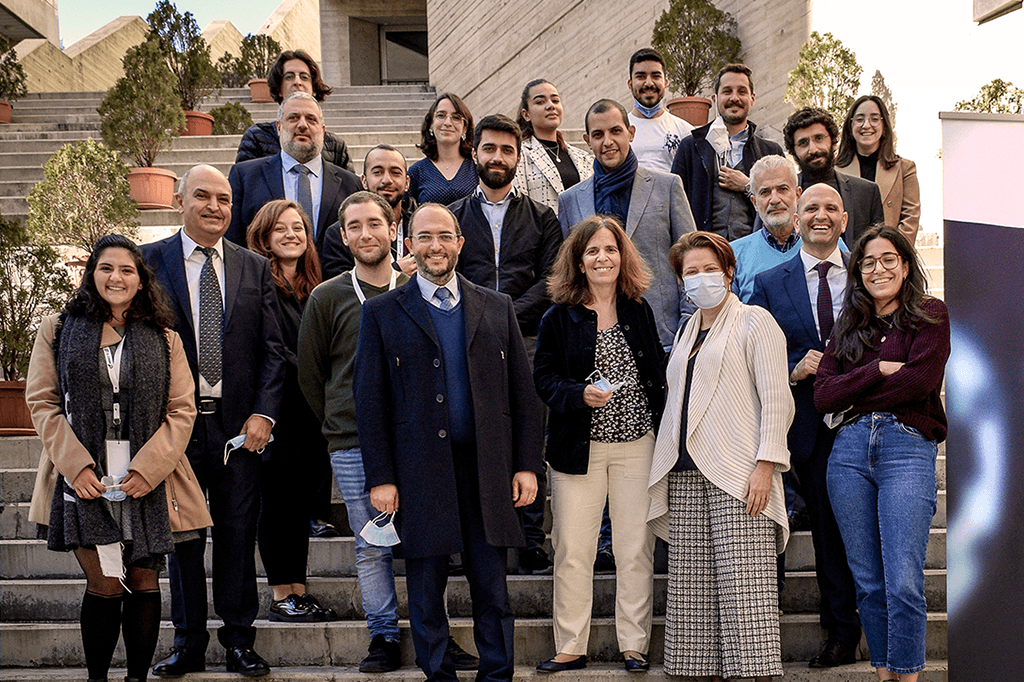Blog
Ushering in an era of independent oversight in Lebanon
An overview of the governance and oversight successes realised through Siren's partnership with Central Inspection.
13 May 2022

Last month, Siren’s Governance, Oversight and Accountability in Lebanon (GOAL) project came to an end, having supported the country’s prime independent oversight agency, Central Inspection, to become more IMPACT-ful by introducing, for the first time, digitally-enabled, real-time oversight of the state.
The partnership between Central Inspection (CI) and Siren between 2019 and 2022 was highly fruitful, sowing the seeds for effective checks and balances to be rolled-out across an increasing number of public institutions . Below, we pull out some of the core successes realised through this partnership to-date.
Empowering Central Inspection to conduct oversight
The project’s main output was the Inter-ministerial and Inter-municipal Platform for Assessment, Coordination and Tracking (IMPACT). Under the auspices of CI, IMPACT is Lebanon’s first e-governance platform.
IMPACT has enabled CI to digitise its oversight by equipping inspectors with digital tools that help mitigate staff shortages in an institution that has been deliberately underfunded by the state. CI’s inspectors now have access to real-time dashboards through which they can monitor and control public administrations and institutions, and local authorities. This allows them to efficiently detect fraud attempts and target field-based inspections based on risk analysis and evidence. Inspectors can refer, at a glance, to more than 170 indicators mapped in the digital general inspection survey disseminated via IMPACT across more than 100 public administrations and institutions.
As a data collection tool, IMPACT is enabling CI to shift from compliance auditing to performance auditing, in which the public administration as a whole is monitored to detect and prevent fraud, but also assessed to improve performance. Combined with the establishment of an Analysis, Planning and Coordination unit within CI and the introduction of data-driven audit methodologies, IMPACT’s real-time auditing function has enabled CI to go from publishing one report annually to around 30 reports since the launch of IMPACT in early 2020.
Enhancing cross-government coordination
IMPACT has enabled CI to activate inter-institutional collaboration with approximately 20 ministries, 1,077 municipalities and 1,500 Mukhtars. It has connected public administrations, local authorities and civil society actors, and facilitated coordination through multi-directional information-sharing and cross-sectoral data collection. In multiple contexts, it has supported more effective crisis management, including in the response to COVID-19, the Beirut Port blast and the socio-economic crisis. It has demonstrated the importance of technology in enabling coordination in the public sector.
CI is also setting a precedent in the public sector in terms of transparency and access to information, by making non-confidential data collected through IMPACT publicly available on a dedicated website, and by publishing its reports and budgets on its own official website.
Enhancing state-society engagement
IMPACT has enabled CI to engage constructively with the public, media and civil society. More than 100 NGOs collaborated with IMPACT to support the offline registration process for the Social Safety Net and the COVID-19 vaccine. More than 10 CSOs, including research organisations academic institutions, and anti-corruption organisations were also engaged in the design, implementation and audit of some of IMPACT’s applications. Two-way communication through social media increased CI’s visibility and credibility, and improved its public perception, with IMPACT being among the top searched keywords on Google in 2021 in Lebanon. As a result of this engagement and its ability to introduce new notions of transparency and accountability in the Lebanese public sector, IMPACT additionally gained broad support among international and local decision-makers
#1 top search on Google in Lebanon in 2021
>500 articles and media appearances featuring IMPACT and CI
>9,300 followers on IMPACT’s Twitter
>12 million impressions on IMPACT’s Twitter page since 2020
High Value for Money
The net benefit of the development of IMPACT since its launch in 2020 has been substantial. The most significant cost saving is attributable to reductions in the loss of human life. Based on an AI analysis of the vaccination campaign, the use of IMPACT saved an estimate of 6,330 lives.
The use of IMPACT also contributed to limiting fraud – especially in COVID-19 vaccine certificates, as fraud attempts were detected and the workflows were subsequently optimised to prevent future fraud. Data collection costs were also significantly saved, as IMPACT allowed for the mapping of more than 1,000 towns and villages across Lebanon on the rural and local development module, as well as the surveying of more than 100 public administrations and institutions and more than 200 government buildings in the aftermath of Beirut port blast.
Through IMPACT, citizens and residents have had free and fair access to public services, such as the vaccine and the mobility permits during COVID-19 lockdowns. They have also had opportunities to engage with public entities and monitor their performance through IMPACT’s open data website. Resultant improved citizen confidence in a public institution like CI and the broader ramifications of this, such as on the likelihood of democratic participation or in building stronger coalitions for reform, is also a net positive that is not equally quantified.
>580,000 households applied for the Daem program
>920,000 Covid-19 cases tracked
>3.7 million individuals registered for vaccines
>15 million mobility permits submitted during the lockdown